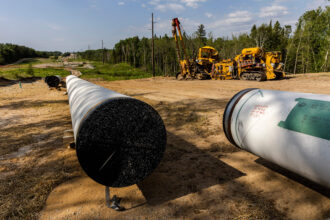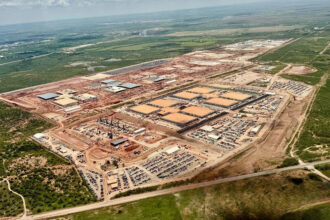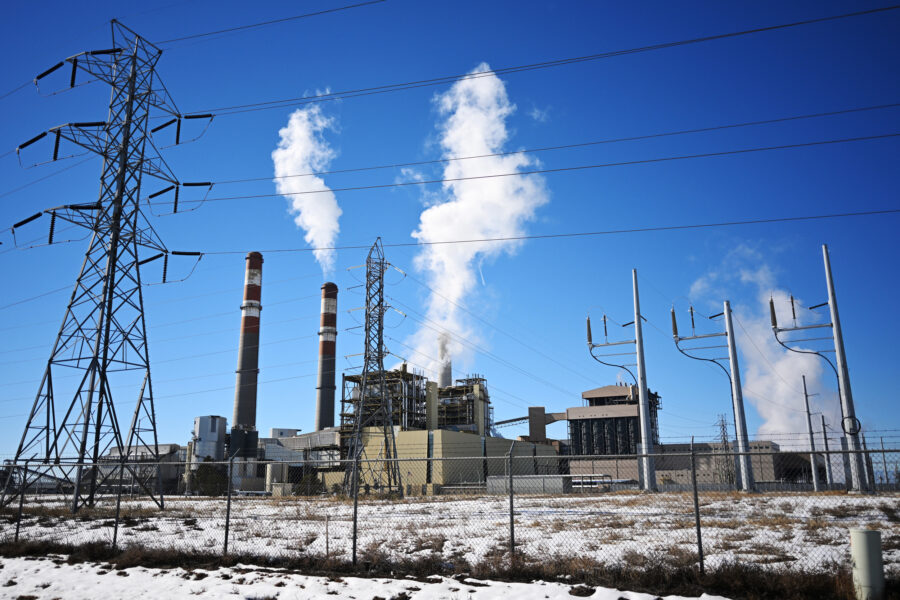Environmental lawyers have made their boldest move to date against “greenwashing” in advertising campaigns by oil and gas companies.
ClientEarth, a non-profit legal group, submitted an official complaint under international guidelines on Tuesday arguing that the oil giant BP is misleading consumers about its low-carbon credentials in recent advertisements—the company’s first global campaign in 10 years.
The ads, which emphasize BP’s role in the transition to cleaner energy, create a “potentially misleading impression” that distracts the public from their core business of hydrocarbons, ClientEarth said.
“BP is spending millions on an advertising campaign to give the impression that it’s racing to renewables, that its gas is cleaner and that it is part of the climate solution,” said Sophie Marjanac, a lawyer at ClientEarth. “This is a smokescreen.”
The complaint, submitted to the British authority that handles alleged breaches of rules on corporate conduct set by the OECD, the organization of leading world economies, focuses on the oil major’s “Keep Advancing” and “Possibilities Everywhere” advertising campaigns shown digitally and across billboards, newspapers and television in the UK, the United States and Europe.
If successful, the OECD could call upon BP to take down its ads or to issue a corrective statement.
Duncan Blake, director of brand at BP, told the Financial Times this year that the company sought to focus not just on the “new, interesting shiny stuff but the core business that keeps the world moving day to day.”
BP’s Message: More Energy, Lower Emissions
Critics have said the majority of the ads give the impression that BP is seeking to burnish its green credentials without any meaningful change to how it conducts its operations.
The energy major has invested in solar power, wind farms and biofuels and used its venture capital arm to plough cash into low-carbon technologies. But its traditional businesses still generate the biggest returns and attract the most spending.
“While BP’s advertising focuses on clean energy, in reality more than 96 percent of the company’s annual capital expenditure is on oil and gas,” Marjanac said.
BP in recent years has focused its messaging on the “dual challenge” of providing the world with more energy while reducing emissions.
The company said that it “strongly rejects” the suggestion that its advertising is misleading and that “one of the purposes of this advertising campaign is to let people know about some of the possibilities” to advance a low-carbon future.
Other Oil Majors’ Claims Also Challenged
It will be up to Bernard Looney, who is set to take over from Bob Dudley as chief executive of BP in early 2020, to spell out what this means for corporate strategy.
Other oil majors have also been challenged over misleading advertising. In September, the UK Advertising Standards Authority told Equinor, the Norwegian energy company, not to imply that gas is a “low-carbon energy” source.
To address “greenwashing” more broadly, ClientEarth said it was launching a campaign calling on the next UK government to require tobacco-style labels warning that fossil fuels contribute to climate change on all advertising by oil companies.
© The Financial Times Limited 2019. All Rights Reserved. Not to be further redistributed, copied or modified in any way.
About This Story
Perhaps you noticed: This story, like all the news we publish, is free to read. That’s because Inside Climate News is a 501c3 nonprofit organization. We do not charge a subscription fee, lock our news behind a paywall, or clutter our website with ads. We make our news on climate and the environment freely available to you and anyone who wants it.
That’s not all. We also share our news for free with scores of other media organizations around the country. Many of them can’t afford to do environmental journalism of their own. We’ve built bureaus from coast to coast to report local stories, collaborate with local newsrooms and co-publish articles so that this vital work is shared as widely as possible.
Two of us launched ICN in 2007. Six years later we earned a Pulitzer Prize for National Reporting, and now we run the oldest and largest dedicated climate newsroom in the nation. We tell the story in all its complexity. We hold polluters accountable. We expose environmental injustice. We debunk misinformation. We scrutinize solutions and inspire action.
Donations from readers like you fund every aspect of what we do. If you don’t already, will you support our ongoing work, our reporting on the biggest crisis facing our planet, and help us reach even more readers in more places?
Please take a moment to make a tax-deductible donation. Every one of them makes a difference.
Thank you,











